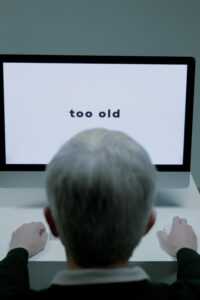 There has never been a political party that had a driving tenet of cursing people out. Yet, that is exactly what Florida Representative Ted Yoho did to New York Representative Alexandria Ocasio Cortez (AOC) on the steps of the Capitol in Washington, D.C., last week. AOC responded to Yoho’s comments by giving an unscripted speech that went viral and has been hailed by many as seminal to the cause of women in the 21st century. Yoho’s behavior and AOC’s response lead us to consider not only the verbal abuse she experienced but also the range of “isms” used to dominate and disempower people from a sociological perspective.
There has never been a political party that had a driving tenet of cursing people out. Yet, that is exactly what Florida Representative Ted Yoho did to New York Representative Alexandria Ocasio Cortez (AOC) on the steps of the Capitol in Washington, D.C., last week. AOC responded to Yoho’s comments by giving an unscripted speech that went viral and has been hailed by many as seminal to the cause of women in the 21st century. Yoho’s behavior and AOC’s response lead us to consider not only the verbal abuse she experienced but also the range of “isms” used to dominate and disempower people from a sociological perspective.
 Yoho’s behavior and comments to AOC were outside the bounds of civility. They were also a clear-cut example of sexism, prejudice, devaluation, and discrimination based on an individual’s sex. While women are most often the recipients of sexism, men can also be victims. Additionally, while we assume it involves the behavior of one individual toward another, institutions can also operate with a sexist agenda.
Yoho’s behavior and comments to AOC were outside the bounds of civility. They were also a clear-cut example of sexism, prejudice, devaluation, and discrimination based on an individual’s sex. While women are most often the recipients of sexism, men can also be victims. Additionally, while we assume it involves the behavior of one individual toward another, institutions can also operate with a sexist agenda.
Please note that sexism is different from heterosexism, prejudice or discriminatory attitudes and behaviors against homosexuals and homosexuality. If Rep. Yoho’s comments had been directed toward a male colleague who happened to be gay, then we would say he was being heterosexist. Heterosexism is different from homophobia, the fear of homosexuals and homosexuality. A person can have a negative attitude or engage in discriminatory behavior toward someone who is LGBTQIA (lesbian, gay, bisexual, transgender, queer or questioning, intersex, and asexual or allied) without having a clinical phobia in the way they might have a fear of flying or spiders.
What if Rep. Yoho had commented on a colleague’s race? Not surprisingly, that behavior would have been labeled racism, the belief that one race is superior to others resulting in unequal or demoralizing treatment of other races. Racism manifests in many forms and can include things like racial discrimination, unfair or differential treatment of individuals and groups based on race and ethnicity, and racial profiling, action taken against members of a minority group based on those things other than personal behavior.
 In addition to those above, the list of “isms” includes but is not limited to ableism, ageism, antisemitism, classism, and sizeism, to name a few. The common denominator with all of the “isms” is not just the prejudice, a preconceived judgment or opinion of other people and races that lead to preferring one kind of person over another, and discriminatory actions of the perpetrator, but also larger societal imbalances of power that support ongoing oppression. What can we do to redress these “isms”? Use our sociological toolkit to identify, understand, and eradicate not only the behavior but also the social intuitions, structures in society providing the framework for governing the behavior of individuals in a community or society that allow it to flourish in the first place.
In addition to those above, the list of “isms” includes but is not limited to ableism, ageism, antisemitism, classism, and sizeism, to name a few. The common denominator with all of the “isms” is not just the prejudice, a preconceived judgment or opinion of other people and races that lead to preferring one kind of person over another, and discriminatory actions of the perpetrator, but also larger societal imbalances of power that support ongoing oppression. What can we do to redress these “isms”? Use our sociological toolkit to identify, understand, and eradicate not only the behavior but also the social intuitions, structures in society providing the framework for governing the behavior of individuals in a community or society that allow it to flourish in the first place.
Thompson is a co-owner of UITAC Publishing. UITAC’s mission is to provide high-quality, affordable, and socially responsible online course materials.
Images used in this blog:
- “Photo of a Person Wearing Printed Crew-neck T-shirt” by Nicholas Swatz is licensed on Pexels. This image has not been altered.
- “Phrase Racism Is Pandemic on signboard” by Brett Sayles is licensed on Pexels. This image has not been altered.
- “Fight Racism Sign Spraypainted on a Wall” by Adrian is licensed on Pexels. This image has not been altered.
- “An Elderly Man Facing the Computer Monitor” by Ron Lach is licensed on Pexels. This image has not been altered.



